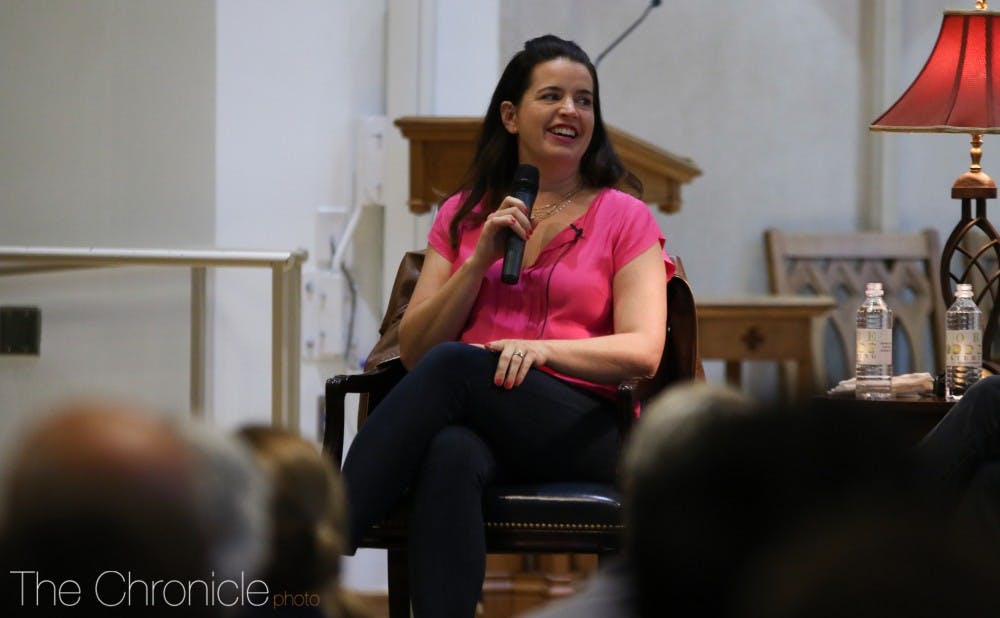Nearly three years ago, Kate Bowler’s friends congregated in Duke's Goodson Chapel to pray after she was diagnosed with incurable stage 4 colon cancer at 35 years old.
On Saturday night, Bowler returned to the same venue to discuss how she’s grappled with a traditional American belief that all tragedies are tests of character.
To Bowler, an assistant professor at the Duke Divinity School, the news was crushing, she wrote in a New York Times op-ed, but also ironic, given she had recently written a book called Blessed. Bowler is a historian of the American prosperity gospel, which she defines as “the belief that God grants health and wealth to those with the right kind of faith.”
Bowler said that when cancer wrecked her body, she was reconstituted by the sheer force of love.
“I’m not great on trust, because I’m not sure what the terms are, but I’m big on love because I felt it,” she said. “Love from the church, love from the people visiting me, just a really intense experience of divine love that made me feel no longer disposable.”
She shared the stage with Ray Barfield, a professor of pediatrics and Christian philosophy at the Divinity School. The talk was part of a three-day conference bridging medicine and faith to foster conversations about how to be present for those who are suffering.
Bowler said she discovered that interactions with sick people tend to be scripted, and she often found herself on the receiving end of well-intended but ultimately unhelpful encouragement.
“People have the deepest desire to say a billion different versions of 'nothing is lost,'” Bowler said. “My experience is that plenty of things are lost. I lost a lot of my liver. I have no vestigial organs … There are all kinds of pain, trauma, sadness, fears I now have that I didn’t have before.”
Lisa Werner, a clinician at Lawndale Christian Health Center in Chicago, said that hearing Bowler articulate how she feels during these interactions informs her own practice.
“I feel like I’m playing the role of chaplain in the exam room. Some patients are being more honest than they’ve ever been,” Werner said. “And there’s this expectation for me to give them hope.”
Pamela Swan, a board member of National Alliance on Mental Illness Durham and Faith Connections on Mental Illness, said that she took away from Bowler’s talk the importance of simply bearing witness to someone’s grief.
“Love does transcend, and we must be authentic and focused on giving them our love,” she said.
Bowler said that she feels an urgency in her life and often asks herself: "What am I doing? Is this how I’m supposed to be spending my time? Am I doing this right?"
“I still don’t take naps," she said. "I am determined to pack 200 things in a day. I write down milestone journals for my poor kid who probably doesn’t need his whole life chronicled so thoroughly."
Get The Chronicle straight to your inbox
Sign up for our weekly newsletter. Cancel at any time.

